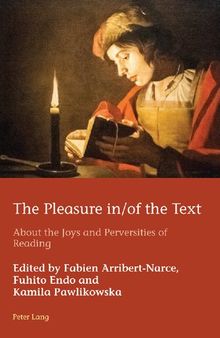 جزییات کتاب
جزییات کتاب
Reading is a peculiar kind of experience. Although its practice and theory have a very long tradition, the question of aesthetic pleasure is as perplexing as ever. Why do we read? What exactly thrills us in the text? One of the most prominent scholars having addressed these questions in the twentieth century is undeniably Roland Barthes, who distinguished between the «ordinary» pleasure of reading and bliss (jouissance), a delight so profound that it cannot be expressed in words. Taking his work as a central reference, and revisiting some of his seminal publications on the subject such as Empire of Signs (1970) and The Pleasure of the Text (1973), this collection of essays adopts a similar interdisciplinary approach to explore a broad range of themes and issues related to the notion of readerly enjoyment, between form and content, emotion and reason, and escapist and knowledge-seeking responses to the text: how do literary and ideological pleasures intersect? In what ways do perversions, madness or even fatigue contribute to the pleasure of the text? How do writing and signs, sense and significance, but also image and text interact in the intermedial process of reading? How can paratexts - i.e. the margins of the text, including footnotes - and metatexts play a part in the reader's enjoyment?



 دانلود کتاب
دانلود کتاب

 جزییات کتاب
جزییات کتاب





 این کتاب رو مطالعه کردید؟ نظر شما چیست؟
این کتاب رو مطالعه کردید؟ نظر شما چیست؟
